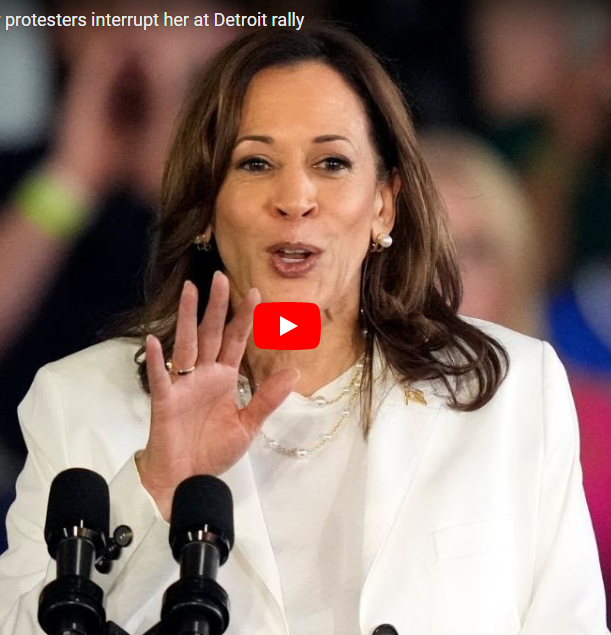In a recent rally in Detroit, Vice President Kamala Harris showcased what many see as a classic display of political double-speak. Amidst the applause and heckles from pro-Palestinian protesters, Harris tried to balance on a shaky tightrope of political agendas, leaving voters questioning where she truly stands.
The Detroit Incident: A Microcosm of Inconsistency
During her speech, protesters interrupted, chanting against policies they perceive as supportive of genocide. Harris’s response? A broad statement that “everyone’s voice matters.” But does it really? While attempting to placate the radical left with affirmations of inclusivity, her actions—or lack thereof—speak louder than her carefully chosen words.
Harris has been notably absent from taking a definitive stance on many critical issues, especially those pertaining to foreign policy. Her approach seems more about maintaining an image rather than committing to concrete policy changes. When heckled, her response was a condescending “I’m speaking now,” a phrase that might reveal more about her interpersonal dealings than she intends. It’s a tone that many insiders claim is a glimpse into how she treats her own staff behind closed doors—hardly the empathetic and progressive leader she markets herself to be.
Harris’s Flip-Flop Diplomacy
The Vice President’s history of indecisive diplomacy is telling. She famously skipped Israeli Prime Minister Netanyahu’s congressional address to attend a sorority speech, only to meet privately with him later. Such actions highlight a pattern of public posturing followed by private dealings, suggesting a lack of genuine conviction and a propensity to shift positions based on audience.
Her rhetoric at rallies often contrasts sharply with her actions. While she vocalizes support for all voices, including those critical of Israeli policies, her administrative actions have yet to align with the progressive promises she makes on stage. This discrepancy leaves both supporters and critics in a limbo of uncertainty about her true policy intentions.
No Formal Policy Positions: A Strategy of Ambiguity?
Harris’s reluctance to take formal policy positions is becoming increasingly evident. This strategic ambiguity might be a political maneuver designed to keep her options open, but it also breeds distrust among voters. By not committing to specific stances, she retains the ability to pivot as political winds change, but at the cost of appearing unprincipled and indecisive.
The radical left, including groups supporting Palestinian rights, might find her statements about democracy and inclusivity hollow when measured against her non-committal approach to policy. Meanwhile, her purported support for Israel is seen by some as equally superficial, given her avoidance of strong public endorsements or criticisms.
Final Thoughts
Kamala Harris’s performance at the Detroit rally is emblematic of her broader political strategy: say enough to appease, but not enough to commit. This tactic may keep her political career afloat, but it does little to instill confidence in her leadership. Voters deserve clear, consistent, and transparent communication from their leaders—qualities that Harris seems to struggle with.
As we head deeper into the election cycle, it’s crucial for voters to scrutinize not just what Harris says, but what she does. Is she a leader who stands firm on her convictions, or a political chameleon blending into whatever background will benefit her most at the moment? Your thoughts are important to us. Dive into the comment section below and let us know your take on Harris’s political maneuvers.


Leave a Comment